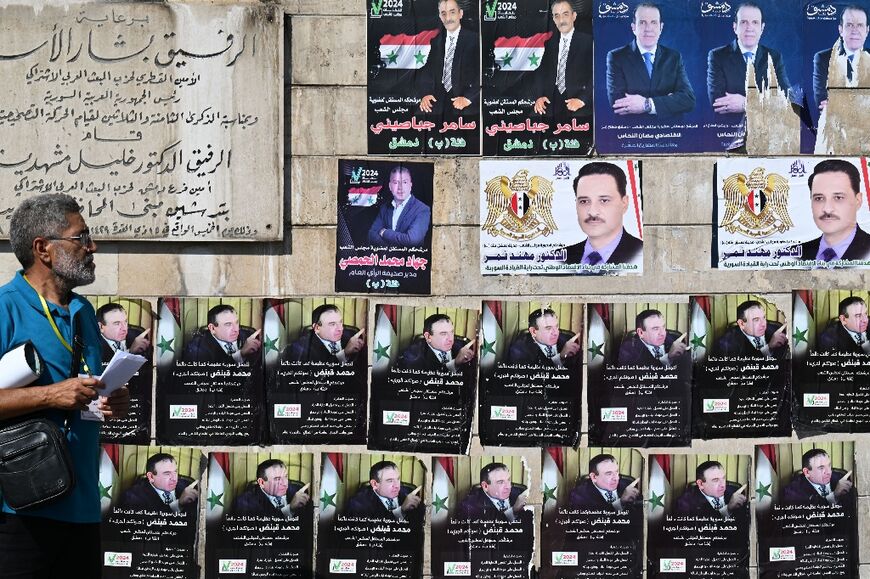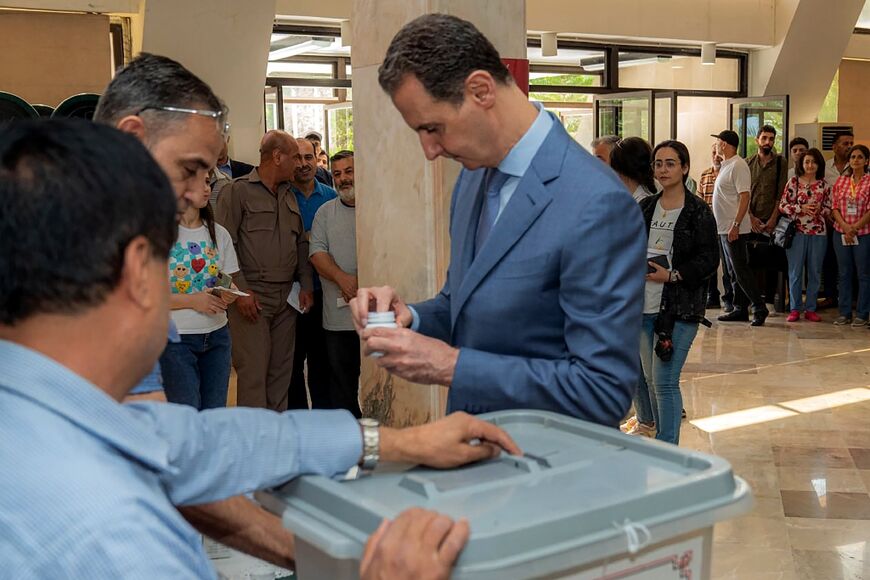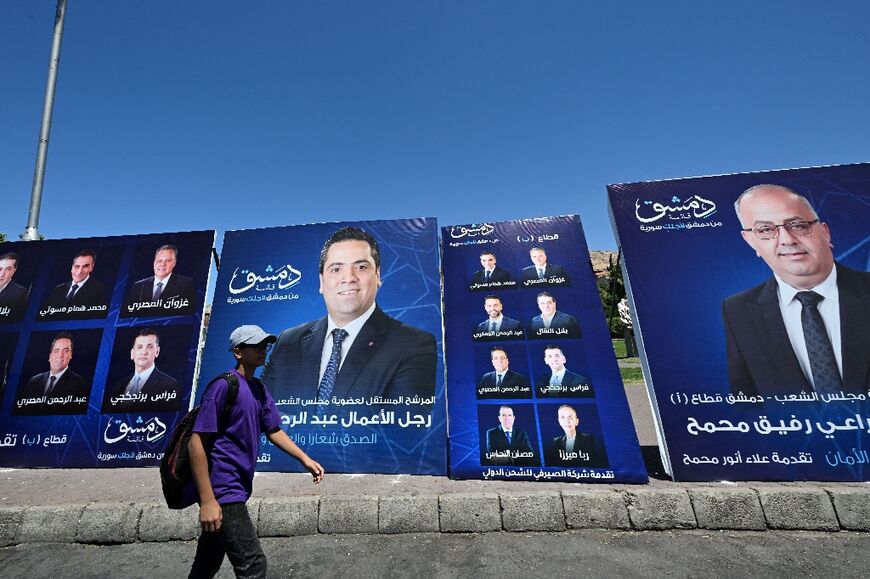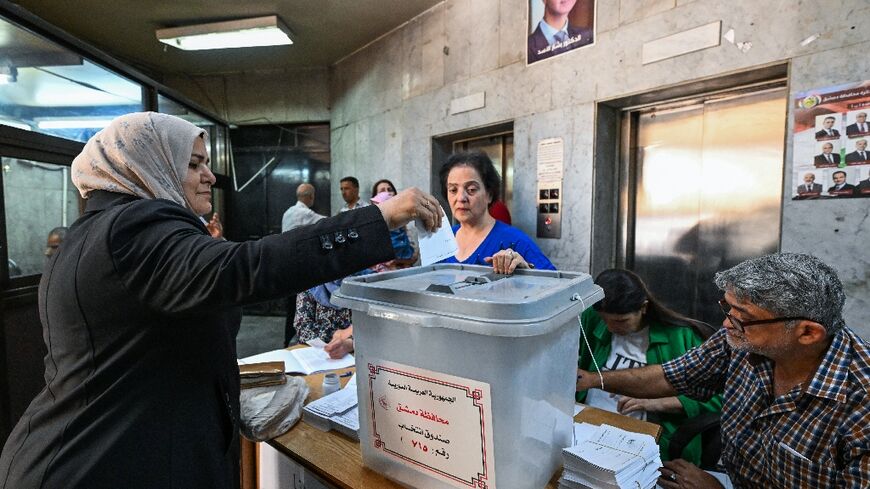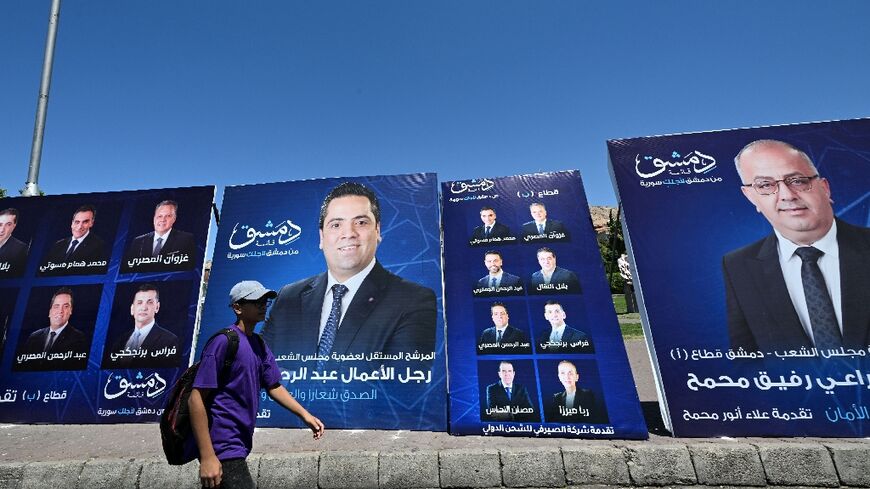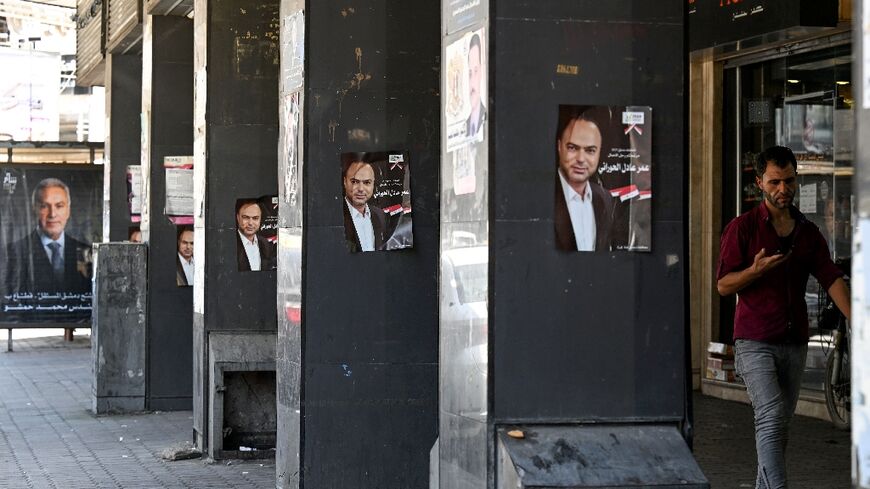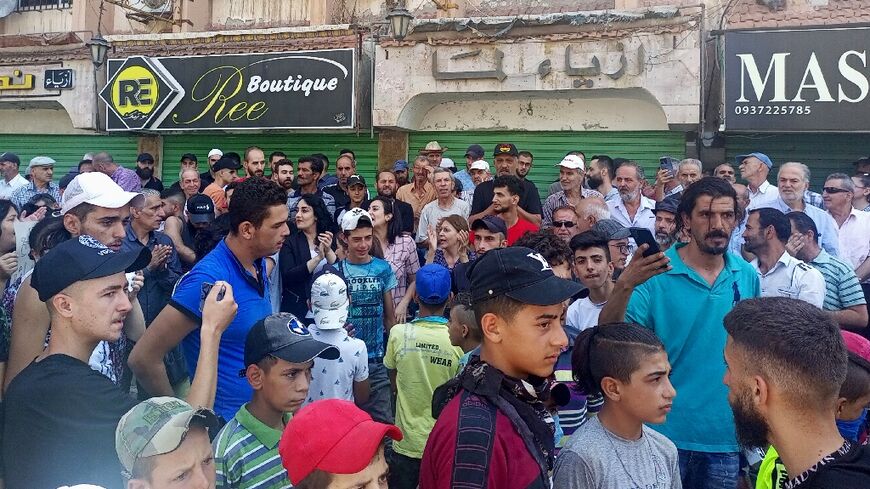No surprises expected as Syrians vote in parliamentary poll
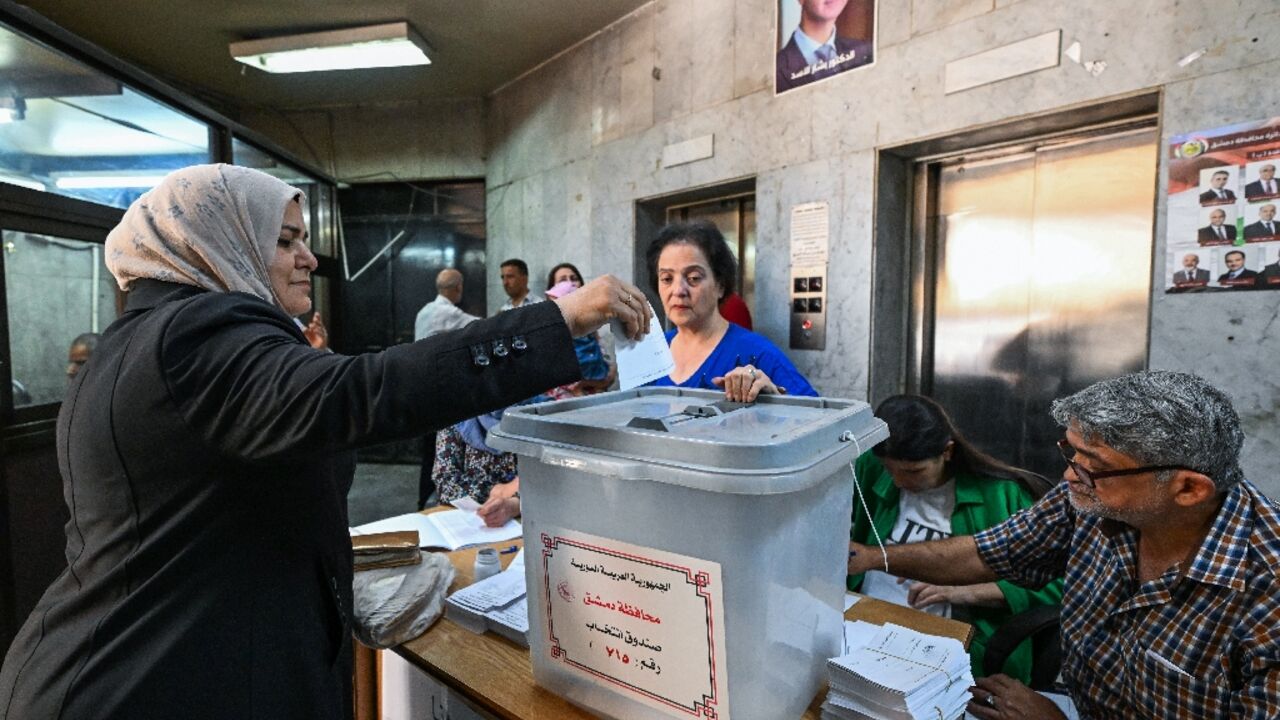
Syrians in government-held areas were voting Monday in their fourth parliamentary election since civil war erupted in 2011, a poll expected to keep President Bashar al-Assad's ruling Baath party in power.
The election came amid overtures from Ankara towards Damascus, after ties were severed following the start of Syria's war in 2011, with Assad saying he was open to meeting Turkish President Recep Tayyip Erdogan depending on the encounter's "content".
Voting was calm in most areas, but a war monitor and a local media outlet reported anti-election protests in southern Sweida province, the heartland of Syria's Druze minority, which has seen regular demonstrations for almost a year.
The Baath party -- in power since 1963 -- and its secular left-wing and Arab nationalist allies are running virtually unopposed, with independents the only alternative.
More than 1,500 people are standing for the largely rubber-stamp parliament, according to Syria's Supreme Judicial Elections Committee.
Assad's Baath party is expected to secure most of the 250 seats in the legislative ballot, which is held every four years.
"We have to take responsibility for electing good people and not repeating the mistakes of the past in voting for old names who can't change anything," said health ministry employee Bodoor Abu Ghazaleh, 49, voting in Damascus.
Rania Deeb, a state electricity company employee, called the election "a real opportunity for citizens to express their views and choose representatives who can achieve change and the required reforms", amid long years of war and a gruelling economic crisis.
- Protests in south -
In Sweida province, the Syrian Observatory for Human Rights said demonstrators attacked polling stations in several areas.
Since 2020, protests against deteriorating economic conditions have erupted sporadically in Sweida, but the latest wave started in August after the government cut fuel subsidies, with demonstrators also demanding "the fall of the regime".
"Some protesters smashed or set fire to ballot boxes," said the Britain-based Observatory.
Footage posted by local news outlet Suwayda24 showed dozens of protesters in Sweida city, one holding a sign reading "Only the corrupt vote for the corrupt".
"There is no place for this ruling gang in Syrians' present and future. Enough, leave," another read.
Suwayda24 said one person was wounded after security forces shot "randomly" as a demonstration took place in the city, while a video taken elsewhere in the province showed people throwing ballots on the ground or tearing them up.
Syrian security services have a limited presence in the province, where Damascus has turned a blind eye to tens of thousands of Druze men refusing to undertake compulsory military service.
With help from key allies Iran and Russia, Damascus has regained control of much of the territory it lost early in Syria's war, which began with the repression of anti-government protests.
It spiralled into a complex conflict drawing in foreign armies and jihadists, and has killed more than 500,000 people and displaced millions.
- 'Absurd' -
Erdogan said this month he might invite Assad to Turkey "at any moment", in a sign of reconciliation after Ankara backed Syrian rebels seeking to topple the government.
Pro-Turkish forces now control swathes of Syria's northern border.
Assad said Monday that if a meeting with Erdogan "were to lead to results or... achieve the country's interests, I will do it".
But the problem "lies in the content of the meeting", he said, noting that "support for terrorism, and the withdrawal from Syrian territory" of Turkish troops were the "essence of the problem".
Assad also said Monday's election was different from previous votes.
"Today, we are in a transitional phase linked to visions about the role of the state and state institutions in general and policies," he told reporters, and parliament "must be part of this phase".
Syrians in areas held by Ankara-backed rebels, as well as in the Kurdish-controlled northeast and the jihadist-run Idlib bastion in the northwest, are effectively disenfranchised.
Candidates are still running in those regions, but only Syrians living in government-held areas can vote at designated polling booths.
Voting was extended, with polls set to close at 9:00 pm (1800 GMT).
Millions of Syrians who have sought refuge abroad also have no vote.
Syria's exiled opposition last week condemned the election as "absurd", saying that polls organised by the government "only represent the ruling authority".
United Nations-backed attempts to reach a political settlement have repeatedly failed, and talks since 2019 on revising Syria's constitution have also stalled.


